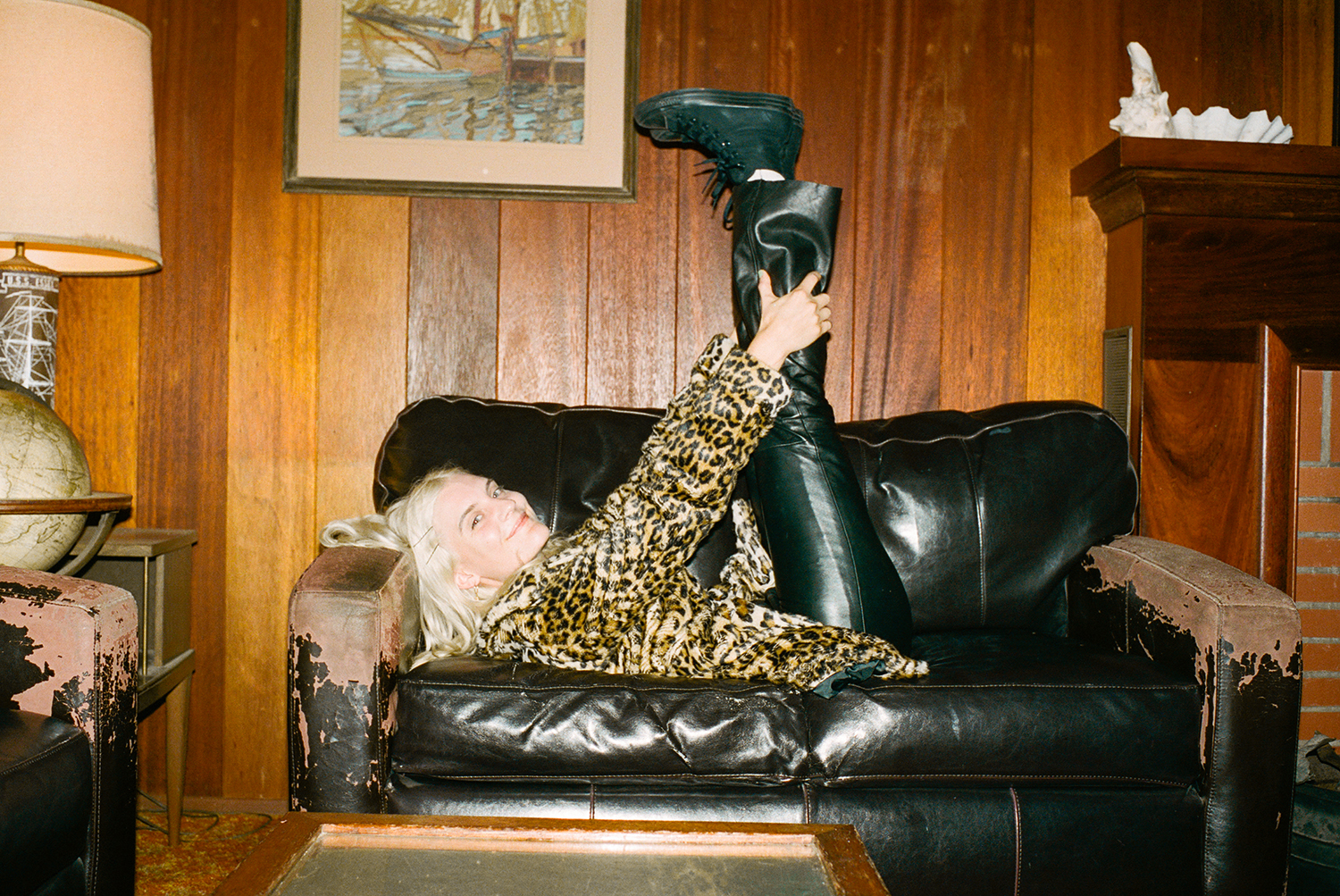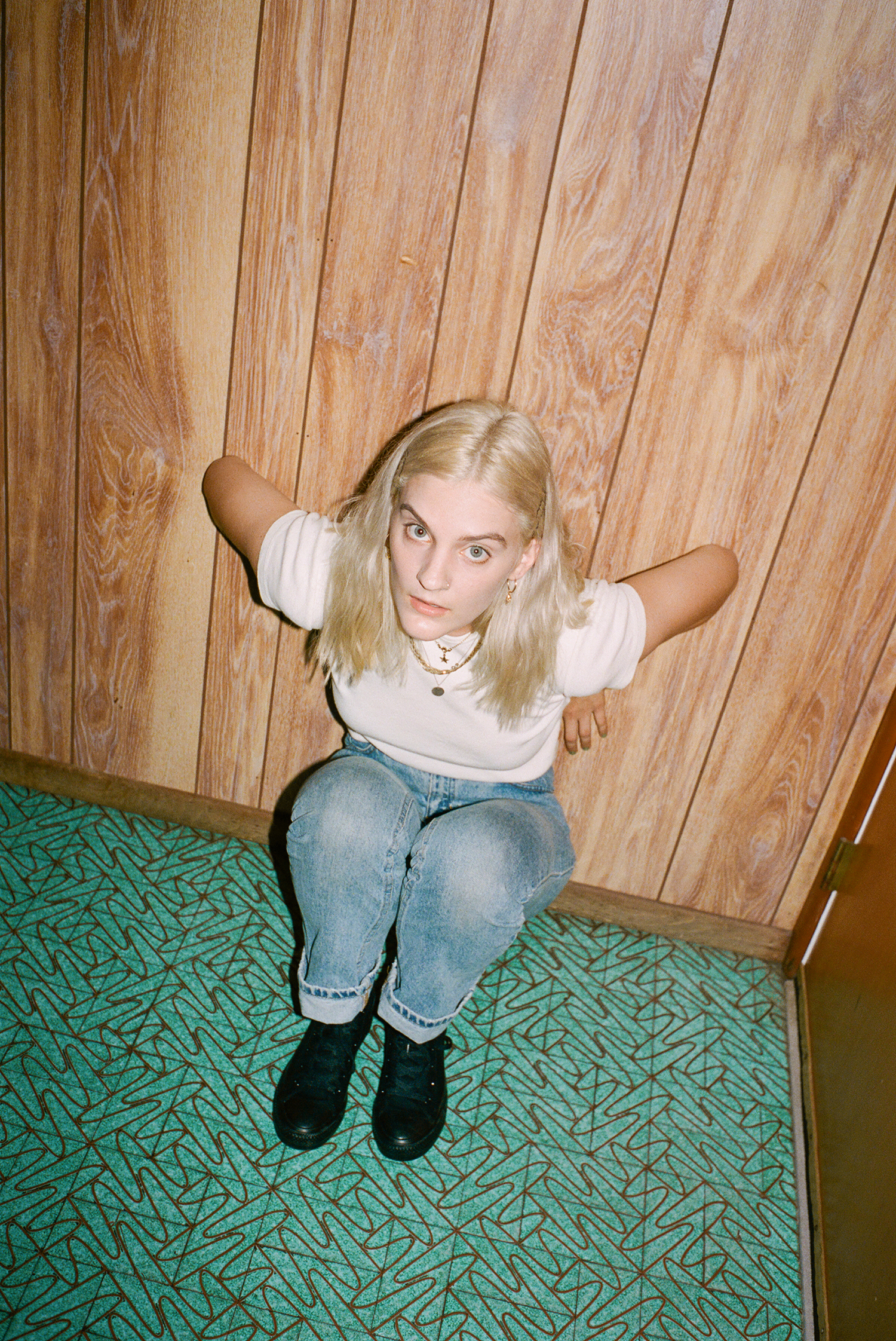photos / Phoenix Johnson
story / Koko Ntuen
Nashville-based artist Liza Anne has written the breakup anthem that will get us all through heartbreak. It’s an ode to the art of being devoted to your own damn self. Inspired by Patti Smith’s short story of the same name, “Devotion” was written in a 10-minute haze that gave Liza the clarity to end a toxic relationship and re-discover herself.
“This song woke me up, gave me a door out of a situation of emotional abuse and gave me a deep respect for myself and my strength and my capability of being okay once I left. So many of the lines feel simple. But I needed something simple. I was drowning in that murky air of grieving a love you’re still living in, totally losing myself to the fight for someone else. This song is my fight for myself.” The artist says.
“Devotion” is a song that climbs into a harmonic cacophony with every beat squeezing the Blondie-Esque female warrior out of you. The leather infused psychedelic video directed by Josh Gilligan is a perfect match.
Ahead of her fall tour with Lucy Dacus, we premiere the raucous anthem and chat with folk-punk rocker about the first new music since her 2018 breakout album Fine But Dying.
What does “Devotion” mean to you?
This song set me free. I wrote it on a day off in Philly in May of 2018. It was one of those magic, everything-falls-out-in-10-
This song woke me up, gave me a door out of a situation of emotional abuse and gave me a deep respect for myself and my strength and my capability of being okay once I left. So many of the lines feel simple. But I needed something simple. I was drowning in that murky air of grieving a love you’re still living in, totally losing myself to the fight for someone else. This song is my fight for myself.
I want everyone to feel a bit of themselves returning when this song comes on. All the things you like, all the ways you are, all the love you give, all the goodness you add to this world – it’s fucking brilliant. Surround yourself with people who give you that understanding of yourself, of your brilliance.
Love yourself a little more. Everything gets better from there.
I write songs before I live them sometimes, and there was an immediacy to what “Devotion” initially gave me. When I wrote it, I needed a way out. But, truthfully, “Devotion” is a meditation for every day. I think every day we need doors into a celebration of ourselves. Our strengths. Our passions and dreams. Permission to not need permission.
“Devotion” is such an anti-heartbreak song. What have you learned most from yourself from breakups?
Something about breakups, when they are inevitable and the hardest BUT healthiest choice, feels like breathing for the first time. The air is thinner, you’re reminded of things you like – sometimes it even feels like meeting yourself for the first time.
It feels simple but I learned that I was going to be okay. And beyond okay, I am healthier and stronger. Nothing is worth losing yourself over and if you’re losing yourself, it is very hard to call that love. Love will always be a generous give and take but not a loss. Love is a nod of respect, not a list of things about you that somebody wants to change. In its best form, love gives us room to be the highest, loudest and most vibrant self. After all the pain I felt calling something love that wasn’t, writing Devotion was a groundbreaking moment for me. It acted as a mantra and proof of how necessary it was for me to leave. When I wrote it, I could only imagine what that freedom would feel like – and truthfully, it was even better than I wrote down.
Who have been some of your greatest muses?
Paris, time alone, confident women.
I can see Patti Smith loving you. I know “Devotion” was inspired by her short story. Are you also a fan of her work?
Oh man, I really do love Patti Smith – her writing has been around at some really pivotal moments for me. I feel at home in her love of Paris and her political voice and the way she makes art. She seems to have always made art because she cannot help it and that’s something I want to stay close to. Art for the sake of yourself and for the sake of others who need permission to not need permission. Art as a means of freedom.
What other artists do you love?
Lizzo, Kacey Musgraves, Faye Webster, Sofia Bolt, Julia Jacklin, Natalie Prass, Phoebe Bridgers, Lucy Dacus, Julien Baker, Jade Bird, Sza, Michelle Blades. I could really go on and on.
How did the tour with Lucy Dacus come about? We love her as well.
I’ve always been such a fan of Lucy and we’ve gotten to know each other in these really sweet windows of time in the last year. When she asked us to come on tour, it was a no-brainer. Her audience is so loving and respectful, her band is so welcoming. I just have a really amazing feeling about these shows – to be invited into something that has such a peace and self-assured pace about it! It’s a dream.
Ray LaMontagne is also one of my favorite artists! What was it like touring with him?
It was beautiful – everyone in his circle, including him, is really kind and generous. I was doing the shows solo and there was something magic about breaking the songs down to their original forms.

What is a tour experience like for you? How do you gather your bearings in each city you are in and give the same energy every night?
Touring makes days feel like months – it feels like a strange time warp so I like to find time in the day to ground myself or find a “door to close”. Finding a quiet moment of solitude in a local book store, a small yoga flow in the green room, a guided meditation, eating foods that make me happy, writing a postcard to a friend, taking a walk. Anything that feels totally separate from the performance side of my life – there is something cathartic and healing about playing shows but it’s best when I have a private self that isn’t experienced, too. I like to fill up doing things that are just mine – things that aren’t posted or public – so that I can have something to give.
How did you get into playing music? What were the first songs or things that inspired you?
I wrote poetry a lot as kid and it seemed like a natural progression to start putting music to that – I learned guitar at my summer camp when I was 13. Some of the first moments of inspiration were probably Feel It All by Feist, Joni Mitchell’s Big Yellow Taxi, Dreams by the Cranberries and Brandi Carlile’s The Story.
I love that your sound is so versatile. You are described as a folk artist in some places, pop, rock in some, glam rock even, do you have an overarching category you put your music?
I’m just putting sounds to feelings, I’m not sure I’d put it all in one place or genre. Every release feels like a more realized moment of expression – I’m getting closer and closer to a center, but I don’t necessarily ever want to arrive – I want to always be in motion, in transformation, in fluidity. It’s all just catalogued feeling. I’d be doing it wrong if I did the same thing twice.
Fine But Dying really did a lot for people who suffer from anxiety and depression – well me anyway. “Paranoia” hit me so hard. Do you feel vulnerable or empowered when sharing that music?
Both. Feeling empowered without vulnerability is just false power – you cannot have one without the other. Vulnerability is power and power is vulnerability – they, in simplest terms, are interchangeable. Every time I take the time to advocate for myself and my emotions, I feel empowered. Fine But Dying was just the beginning of advocating for myself. Taking careful time with the heavy, more complex, moments in my mind to make room for me to really experience self-love.
What do you think your next album’s themes will be around?
Emotional health. Freedom. No ceilings, all is possible.
WE LOVE YOU! YOU ARE SO BEAUTIFUL AND BRILLIANT. THANKS FOR THE MUSIC YOU MAKE.
Thank you so much for these questions. You are all so thoughtful and I am so thankful for your care towards the music.

CONNECT WITH LIZA ANNE:
